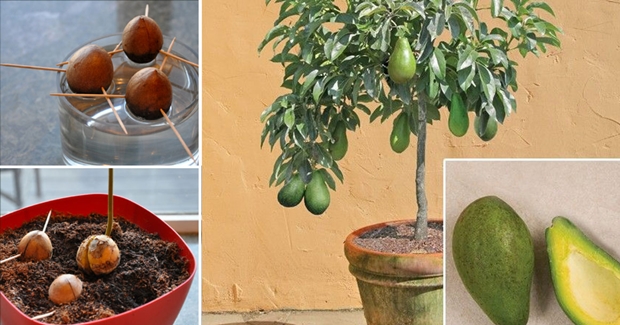4 Ridiculously Healthy Seeds You Should Be Eating Every Single Day
Seeds are nutritional powerhouses: Just a small pinch of them is packed with vitamins, minerals, and essential nutrients. They also happen to be incredibly easy to introduce into any diet, says Lori Zanini, RD, a spokesperson for the Academy of Nutrition and Dietetics. Instead of telling clients to revamp their whole diet, she'll recommend adding a dash of seeds into a smoothie, salad, or entree that's already part of their usual menu.
"If I say, 'Eat these seeds, and this new meal, and this new bar,' it's a little too much," Zanini says. "Gradually incorporating a small change into something they're already doing seems to work better for most people."
Whether you're trying to add more fiber, protein, or health-boosting minerals into your diet, consider including these seeds in your next meal.
Chia
One of the most common issues Zanini sees when she works with clients is that they don't get enough fiber in their diet. Chia seeds have nearly 11 g of fiber per ounce, making them the star seed in Zanini’s eyes. (Try one of these 5 tips to sneak more fiber into your diet.) "The more fiber you eat, the lower your risk of chronic diseases, and fiber also helps lower your blood sugar," she explains. Try them as the star of chia pudding or just mixed into meatballs.
Per 1 oz: 9 g fat, 4 g protein, 11 g fiber
Pumpkin
For clients who are wary of trying new things, Zanini will often recommend a familiar seed, like pumpkin. Pumpkin seeds are a great source of magnesium, a nutrient that promotes a healthy heart that most people don’t eat enough of. (Here are 4 things that happen if you don't get enough magnesium.) Additionally, pumpkin seeds have been used for years as a natural remedy for enlarged prostates, thanks to protective compounds called phytosterols. Enjoy them roasted for a quick snack, or use them to bake a tasty pumpkin bread with a little crunch.
Per 1 oz: 13 g fat, 7 g protein, 1 g fiber
Hemp
Hemp seeds are especially beneficial for vegetarians—the small seeds are considered a complete protein, which means they contain all 9 essential amino acids. (No wonder they're one of 5 high-protein foods nutritionists want you to eat more of!) Hemp seeds are also loaded with omega-3s and rich in magnesium and iron.
Per 1 oz: 13 g fat, 20 g protein, 1 g fiber
Flax
Although it's sold in both whole seed and ground forms, flaxseed is best absorbed by the body when it's ground up, and you'll definitely want to reap the benefits of these little morsels. Like hemp and pumpkin, flax is a great source of magnesium and fiber. Flaxseed is also a great source of alpha-linolenic acid, a kind of omega-3 fatty acid that can help reduce chronic inflammation. Store seeds in the fridge to keep them fresher for longer.
Per 1 oz: 12 g fat, 5 g protein, 8 g fiber
Stay healthy and positive! Share and make your loved ones aware!
Source: Prevention
"If I say, 'Eat these seeds, and this new meal, and this new bar,' it's a little too much," Zanini says. "Gradually incorporating a small change into something they're already doing seems to work better for most people."
Whether you're trying to add more fiber, protein, or health-boosting minerals into your diet, consider including these seeds in your next meal.
Chia
One of the most common issues Zanini sees when she works with clients is that they don't get enough fiber in their diet. Chia seeds have nearly 11 g of fiber per ounce, making them the star seed in Zanini’s eyes. (Try one of these 5 tips to sneak more fiber into your diet.) "The more fiber you eat, the lower your risk of chronic diseases, and fiber also helps lower your blood sugar," she explains. Try them as the star of chia pudding or just mixed into meatballs.
Per 1 oz: 9 g fat, 4 g protein, 11 g fiber
Pumpkin
For clients who are wary of trying new things, Zanini will often recommend a familiar seed, like pumpkin. Pumpkin seeds are a great source of magnesium, a nutrient that promotes a healthy heart that most people don’t eat enough of. (Here are 4 things that happen if you don't get enough magnesium.) Additionally, pumpkin seeds have been used for years as a natural remedy for enlarged prostates, thanks to protective compounds called phytosterols. Enjoy them roasted for a quick snack, or use them to bake a tasty pumpkin bread with a little crunch.
Per 1 oz: 13 g fat, 7 g protein, 1 g fiber
Hemp
Hemp seeds are especially beneficial for vegetarians—the small seeds are considered a complete protein, which means they contain all 9 essential amino acids. (No wonder they're one of 5 high-protein foods nutritionists want you to eat more of!) Hemp seeds are also loaded with omega-3s and rich in magnesium and iron.
Per 1 oz: 13 g fat, 20 g protein, 1 g fiber
Flax
Although it's sold in both whole seed and ground forms, flaxseed is best absorbed by the body when it's ground up, and you'll definitely want to reap the benefits of these little morsels. Like hemp and pumpkin, flax is a great source of magnesium and fiber. Flaxseed is also a great source of alpha-linolenic acid, a kind of omega-3 fatty acid that can help reduce chronic inflammation. Store seeds in the fridge to keep them fresher for longer.
Per 1 oz: 12 g fat, 5 g protein, 8 g fiber
Stay healthy and positive! Share and make your loved ones aware!
Source: Prevention



